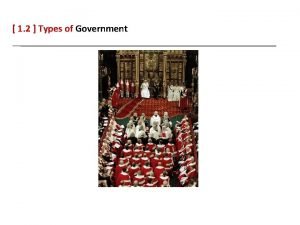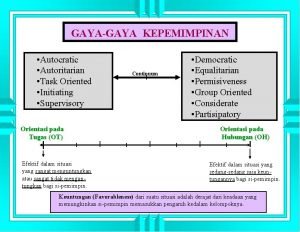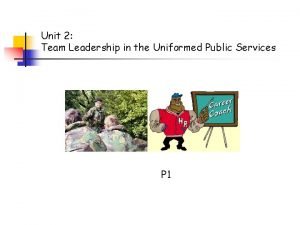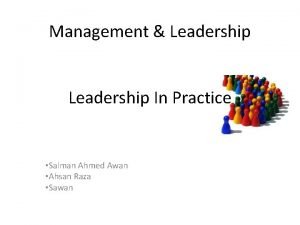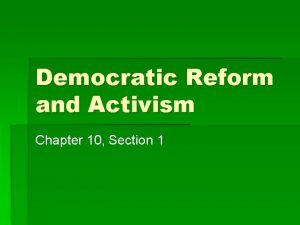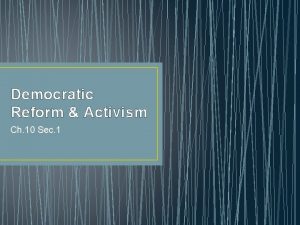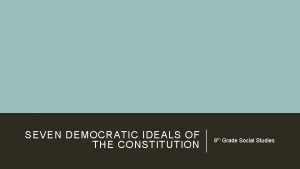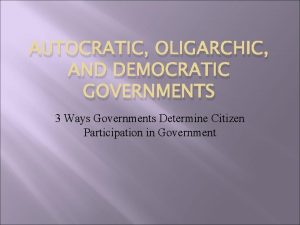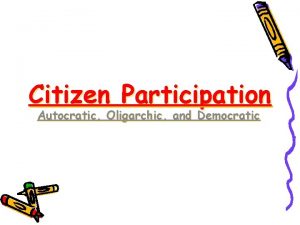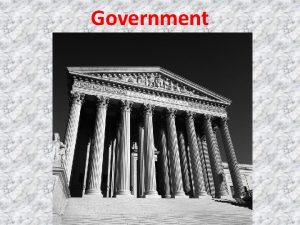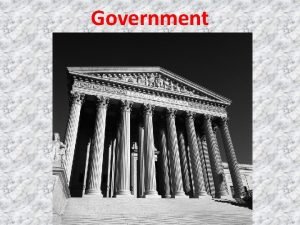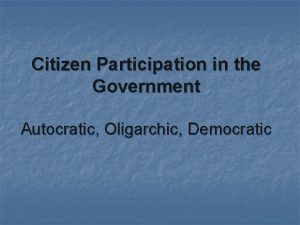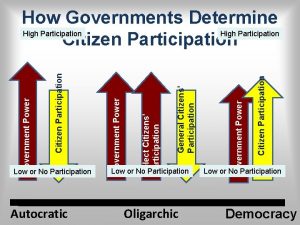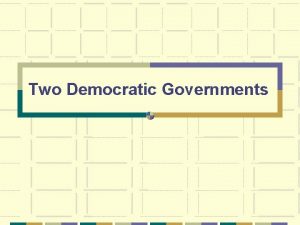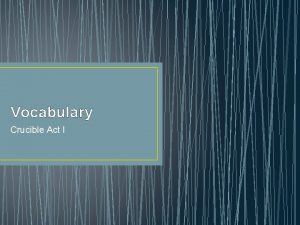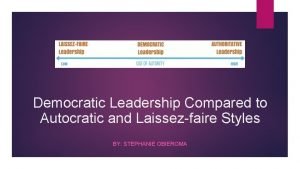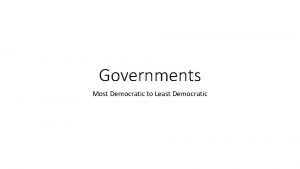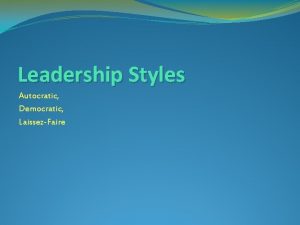Autocratic Oligarchic and Democratic Governments 3 Ways Governments












- Slides: 12

Autocratic, Oligarchic, and Democratic Governments 3 Ways Governments Determine Citizen Participation in Government

Autocratic Governments n Government in which one person possesses unlimited power and the citizen has little if any role in the government. n Can not participate in elections or selecting the ruler n Rulers are dictators

Examples of Autocratic governments n Cuba, North Korea, Iraq under Saddam Hussein

Oligarchic Government n Government by a few, sometimes a government in which a small group exercises control often for corrupt and selfish purposes. The citizen has a very limited role. n Ruler is elected from a group of wealthy, landowners, or people who have the military support

Examples of Oligarchic governments n Iran-theocracy-small religious group rules n Certain African countries

Democratic Governments n Government by the people in which the supreme power is held by the people and exercised directly or indirectly through a system of representation usually involving periodically held FREE elections.

n “Democracy is of the people, for the people and by the people. ” Abraham Lincoln

Characteristics of Democracy n Sovereignty of the people n Government based upon consent of the governed n Majority rule but minority has rights n Guarantee of basic human rights n Free and fair elections n Equality before the law n Due process of law n Constitutional limits on government

Two Types of Democracy n 1. Presidential: A system of government in which the president is constitutionally independent of the legislature. n ** The president is elected by the people of the country and not the legislature

Two Types of Democracy n 2. Parliamentary: A system of government where the elected representatives choose the leader of the country instead of the people. The leader (sometimes called the prime minister) answers to the legislature.

Parliamentary System • Prime Minster –leader, heads Parliament, the law making body • Parliament selects Prime Minister • Prime Minister can dissolve Parliament • May have a head of state with little power – King or Queen Presidential System • Legislaturelawmaking body • President-Leader Citizens elect lawmakers Leader heads the military & runs the government • President is elected • Legislature and President serve for a fixed amount of time • President does not make the laws • President is the head of state and chief executive

 What are the three ways to classify governments
What are the three ways to classify governments Gods ways are not our ways
Gods ways are not our ways Paternalistic leadership
Paternalistic leadership Custodial model definition
Custodial model definition Gaya kepemimpinan task oriented
Gaya kepemimpinan task oriented Alex ferguson autocratic leadership style
Alex ferguson autocratic leadership style Authoritative style of leadership
Authoritative style of leadership Coleadership
Coleadership Autocratic buying center
Autocratic buying center Chapter 10 section 1 democratic reform and activism
Chapter 10 section 1 democratic reform and activism Chapter 10 section 1 democratic reform and activism
Chapter 10 section 1 democratic reform and activism Democratic decentralized in software engineering
Democratic decentralized in software engineering 7 democratic ideals
7 democratic ideals
